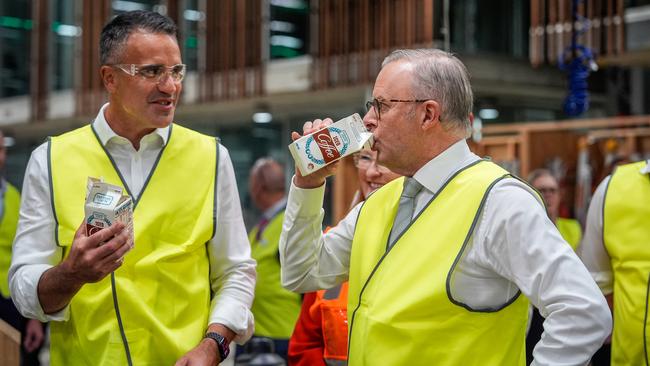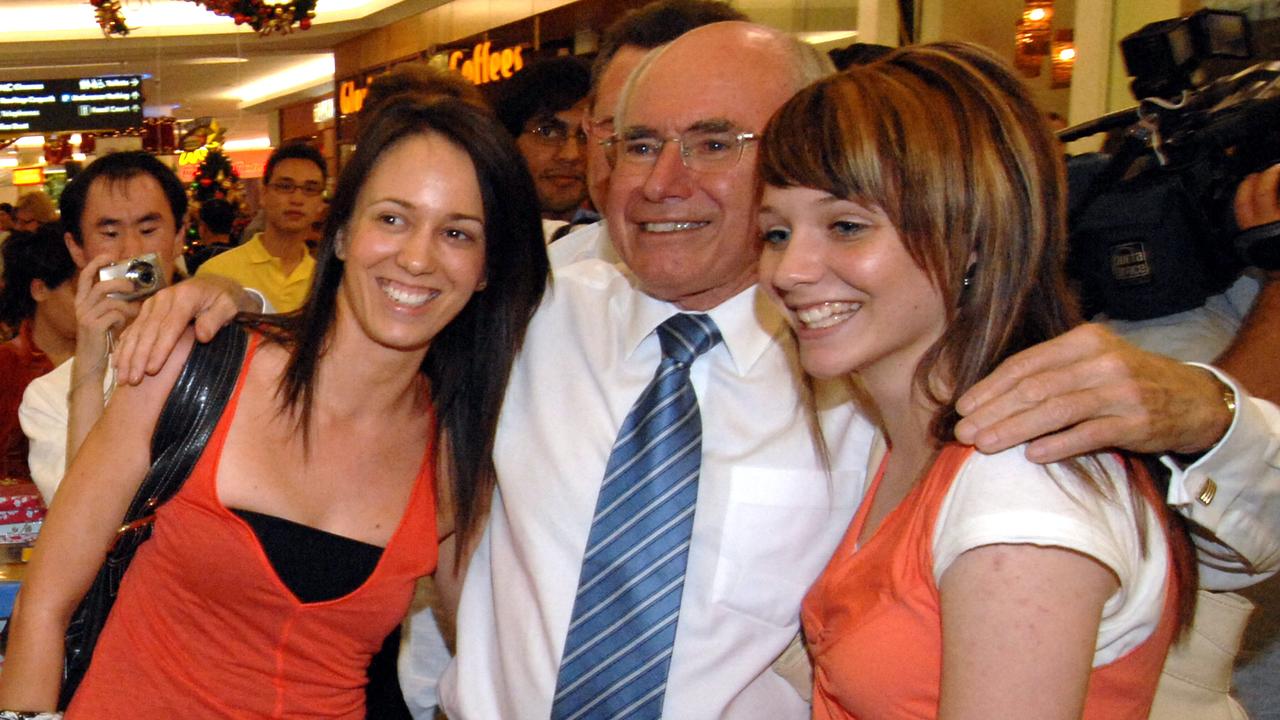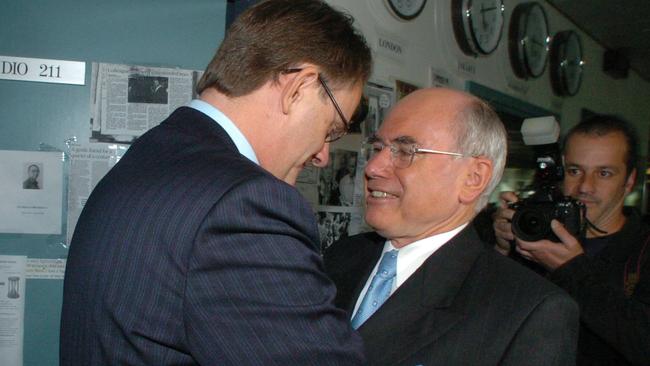Peter Malinauskas and Anthony Albanese’s iced coffee moment shows how campaigns have changed
The Premier and Prime Minister epitomised a sea change in a dispiriting and negative campaign, Paul Starick writes.
SA News
Don't miss out on the headlines from SA News. Followed categories will be added to My News.
Clutching containers of Farmers Union Iced Coffee while chatting with Tonsley TAFE students, Anthony Albanese and Peter Malinauskas epitomised the sea change in campaigning.
Leaders now are like Hollywood actors in a stage-managed quest for cut-through social media memes, moving about tightly controlled sets across the nation.
Campaign operatives direct the show, prearranging the locations and talent to optimise the feel-good factor and quash any hints of dissent or negativity.
Early on Thursday evening at Tonsley, the Prime Minister and Premier grabbed pre-positioned iced coffee containers from a strategically located bucket near a carpentry table.
They chatted casually with a pre-positioned student, with Mr Malinauskas enthusing about the iconic South Australian drink.
“This is the good oil. This is the good stuff. The best in the country,” he said.

First-term ALP Boothby MP Louise Miller-Frost, who has faced internal criticism for keeping a low profile in her marginal seat, was positioned between the pair.
For added distinction, Ms Miller-Frost wore a fluoro orange safety vest – Mr Malinauskas and Mr Albanese wore yellow.
Their comments on policy – the measures they hope will improve the nation – were limited and unremarkable.
Introducing Mr Albanese, Mr Malinauskas enthused about trade careers, saying this was important for the state’s growth.
He was echoed by Mr Albanese, who said the nation needed “more people to build more homes and to engage in construction and electrical in these careers”.
But the cleverly crafted picture opportunity was electoral gold. As The Advertiser’s front-page headline said, the pair were “milking it for all it’s worth”.
Naturally, the images were plastered all over Ms Miller-Frost’s social media.
The well-oiled Labor campaign machine has been galvanised to lift her profile in the bid to defend a 3.3 per cent margin in a seat that could be critical to Mr Albanese’s bid to retain majority government.
The thirst for social media campaigning content is about grabbing the interest of disengaged younger voters.
With the dream of home ownership or even finding an affordable rental turning into a mirage, it’s little wonder that many are dispirited and disillusioned with a lacklustre campaign.

This is the second major sea change wrought by digital media on federal elections. Back in 2007, I spent the final week following the-then prime minister John Howard as he struggled against an inevitable defeat.
Across the country, voters lined up to take selfies with Mr Howard, using their new camera phones, just as they were getting ready to throw him out of office.
Presciently, his campaign advisers privately attributed this to the celebrity factor – people wanted a picture with someone well-known, even if they didn’t want to vote for him.
Just three years beforehand – before camera phones – the Howard Coalition government had thrashed Mark Latham-led Labor in a campaign reminiscent of this election.

Months out from the 2004 polling day, a resurgent Opposition was a strong chance of unexpected victory.
But voters stuck with the devil they knew as the Opposition Leader was personally demonised in a barrage of attack advertisements, casting him as a shadowy, dangerous figure.
The 2004 iteration was “L-plate Latham”. In 2025, Labor has returned fire with “Dutton cuts, you pay”.
The Coalition has been flummoxed and its response tepid. It’s been shown up by conservative activist group Advance Australia, which has produced an effective and cutting campaign with the slogan “Albanese is weak, woke and sending us broke”.
Mr Dutton will have to defy history, opinion polls and a haphazard campaign if he is to emerge as Prime Minister after voting day.
Stranger things have happened but it appears the Coalition has been outgunned, outcampaigned and left behind.
More Coverage
Originally published as Peter Malinauskas and Anthony Albanese’s iced coffee moment shows how campaigns have changed






